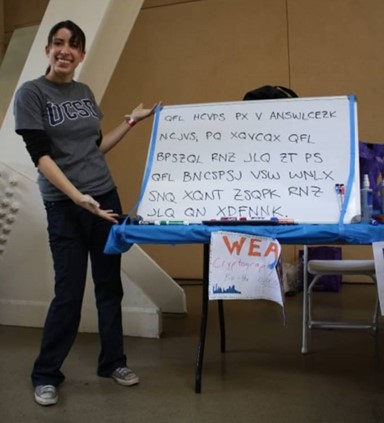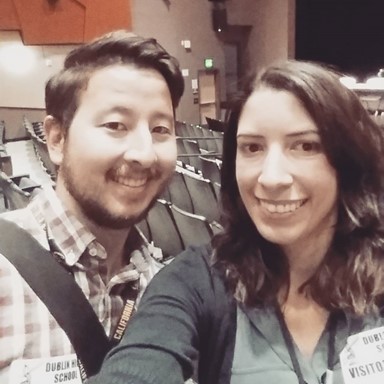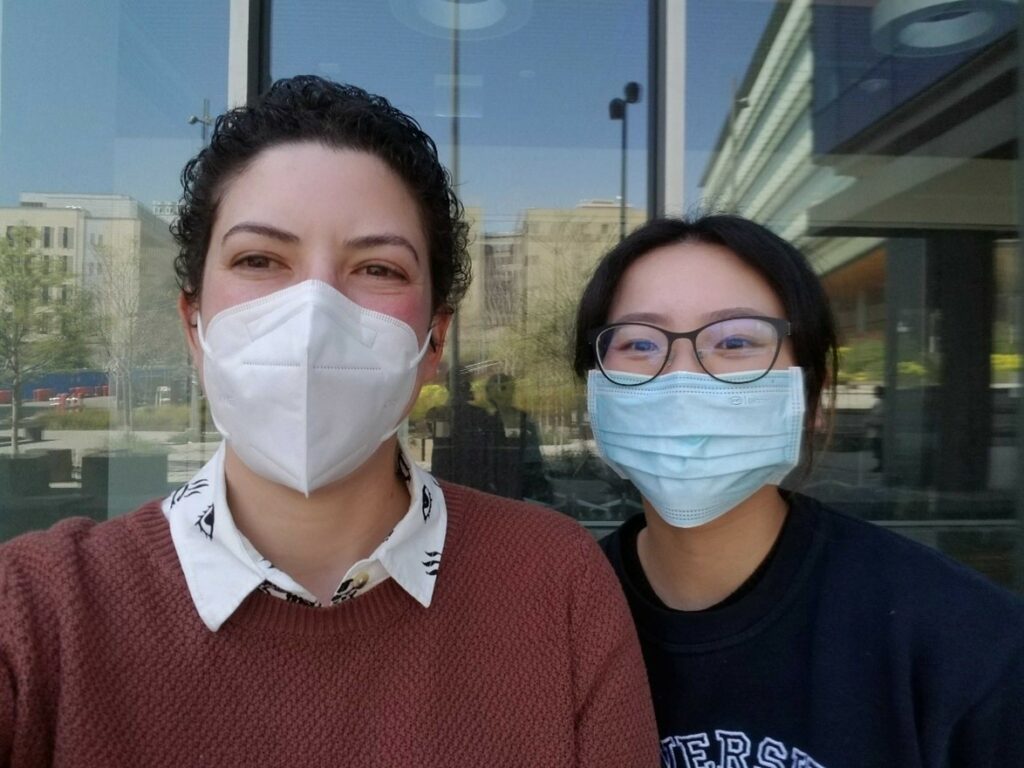Change a Life, Be a Mentor: My Mentorship Experience
Each day of the American Public Health Association’s National Public Health Week (NPHW) focuses on a theme considered essential for the future success of public health as a whole. The Tuesday theme for NPHW 2022 is Public Health Workforce: Essential to our Future. I understand how critical workforce development is to public health, but I must admit that I stumbled into that understanding by chance.
If you take a moment to think about it, your career is partially defined by the people who took a chance on you: the manager who hired you for your first job, the person who taught you how to do something you needed to know, or a mentor who took time out of their schedule to advise you one-on-one. I was 19 when I did my first internship during the summer between freshman and sophomore year of college. The first person who I would consider a mentor was the woman who took a chance on hiring a teenager for an analytic internship and coached me through my first office job. I can’t imagine what a nightmare I was, but I learned skills in that first internship I have carried with me for my entire career and had an edge over my peers who hadn’t done internships yet.
“Who took a chance on you? Maybe it’s time you a took chance on someone.” – Brigette Hyacinth, international speaker, bestselling author, and thought leader on leadership and workforce development
After returning to school at University of California San Diego, the Triton Engineering Student Council (TESC) elected a friend of mine as the Outreach Committee Lead. He was nervous that no one would show up to his committee meetings and asked me to tag along to the first one. Since someone had just taken a big chance on me, I took a chance on him and went to the meeting. His nervousness turned out to be completely unnecessary. The Outreach Committee was one of the most popular Committees, and my friend did an excellent job leading it.
I was involved with TESC in some capacity for the remainder of my undergraduate career. I’m so proud of the time I spent with TESC working with students from all age groups to spark an interest in science, technology, engineering, and mathematics (STEM). During my final year of college, I became the Professional Development Committee Lead and organized workshops and mock interviews for fellow students during the Disciplines of Engineering Career Fair. Personally, I found working with young adults the most rewarding, especially young women and students from underfunded schools who didn’t identify with traditional marketing for STEM careers.

Over the years I’ve mentored students and early career professionals by reviewing resumes, providing informational interviews, sitting on career development boards and panels, attending networking events, and leading public health training exercises and hotwashes. I also helped create the Council for State and Territorial Epidemiologists (CSTE) Early Career Professionals Mentorship Program in 2016 as one of the CSTE Early Career Workgroup Co-Leads.
I didn’t think I had the expertise to be an “official” mentor with the CSTE Early Career Professionals Mentorship Program until 2020. During the COVID-19 pandemic, when everything moved online, my desire to do more for the students and young professionals who will prevent future pandemics outweighed my insecurities. The CSTE Early Career Professionals Mentorship Program only asks for one hour each month from its mentors, and I am fortunate that Lantana Consulting Group allows me to participate in the program during work hours.


Lantana Consulting Group understands how essential mentorship is to career development. In addition to being assigned a supervisor, all employees at Lantana get to pick a “counselor.” The counselor works with the employee on professional goals, skill development, and to plan out their career. Employees can switch counselors as they complete goals or want to explore different areas of the work we do at Lantana. I’ve had several counselors (shout out to my current one Emilie Cousineau) and each provided me valuable insights about my career path.
The truth is you don’t need any special skills to become a mentor. All you need is to have experienced what someone else is experiencing and be able to offer them your perspective. You worried about the same things at points in your career. You remember how much it meant to have someone reassure you in those moments. A decade later, a friend of the woman who hired me for my first internship was interested in the public health field, and the three of us met up for drinks and an informational interview. While my mentor didn’t go into mentoring me expecting to get anything out of it herself – a good mentor never should – good deeds have a way of coming back around to the person who did them.
I’ve found mentorship to be a rewarding experience in both roles: mentor and mentee. I wouldn’t be where I am today without the people who mentored me, and I hope to pay that forward to the people I have mentored in the past and will mentor in the future. I try to volunteer as a mentor in some capacity at least once a year, and I never turn down requests for informational interviews. The time I spend on mentorship activities is minimal, but the results are immeasurable.
The public health workforce addresses the health challenges of our present and future. My challenge to you this NPHW is to identify someone less far along in their schooling or career and let them know they can come to you for advice. Mentoring is a two-way street; if they’re interested, they’ll take you up on your offer. Taking a chance on someone may make their whole career, like it made mine.
Mentorship Opportunities
- Apply for the CSTE Early Career Professionals Mentorship Program (applications typically open in September): https://www.cste.org/page/early-career
- Ask to be included in the Public Health Expertise Network of Mentors (PHENOM): https://www.bettycjung.net/Phenom.htm
- Ask if local schools or schools you attended need mentors
- Search Mentor.org: https://www.mentoring.org/take-action/become-a-mentor/
- Search Volunteer Match: https://www.volunteermatch.org/
- Contact your local Boys and Girls Clubs of America: https://www.bgca.org/
Cipher solution: The brain is a wonderful organ, it starts the minute you get up in the morning and does not stop until you get to school.
